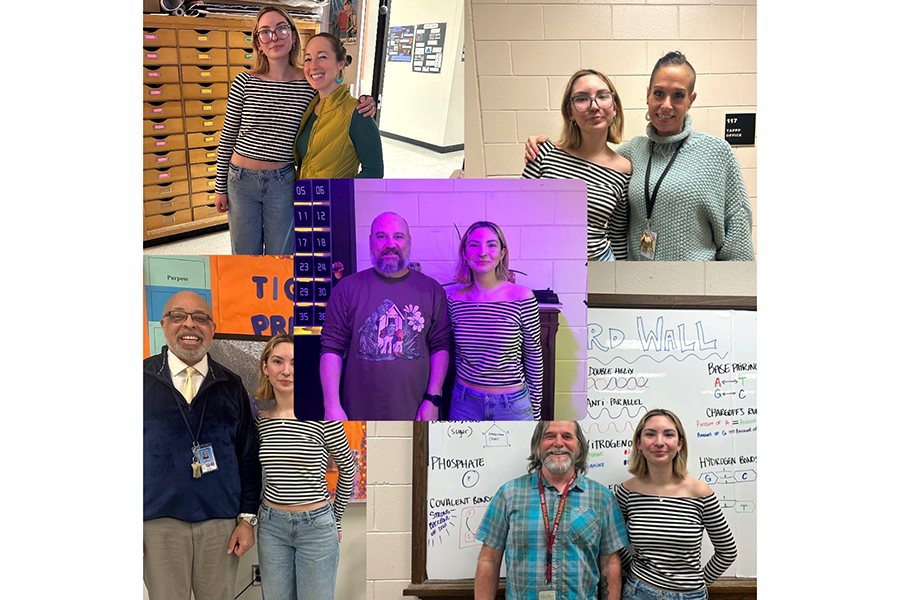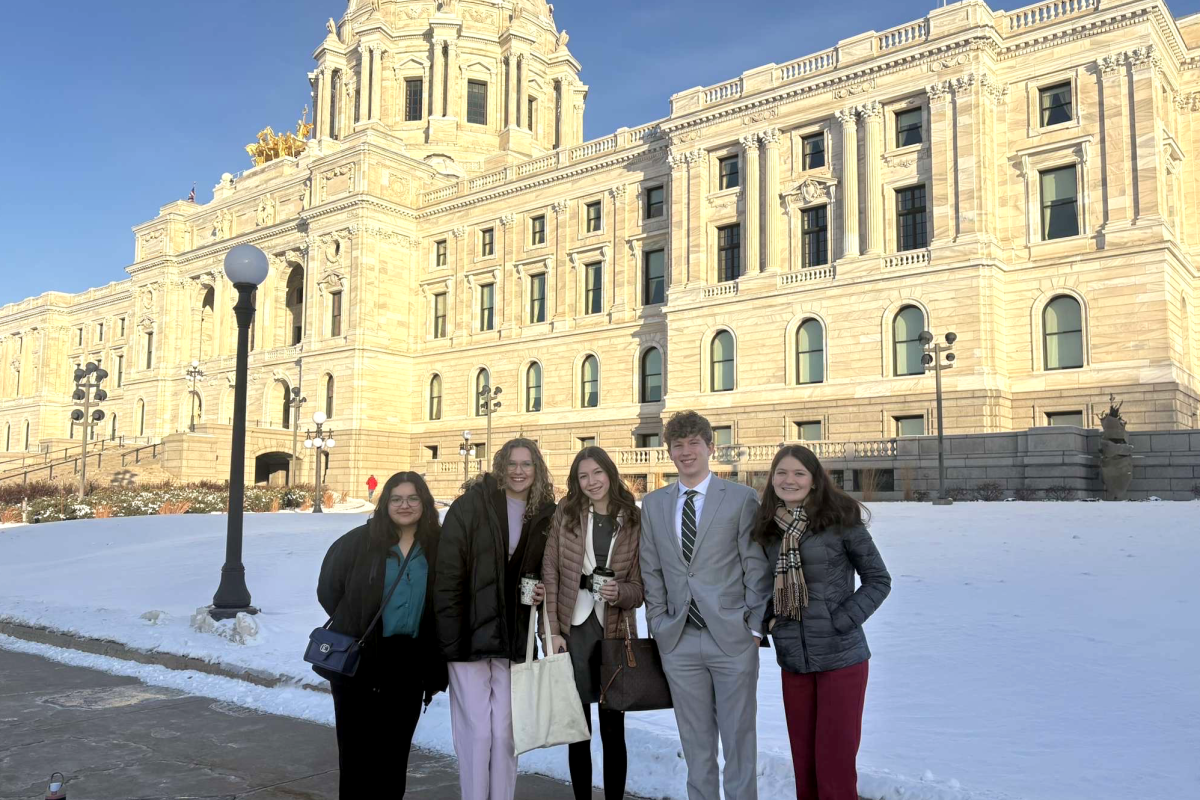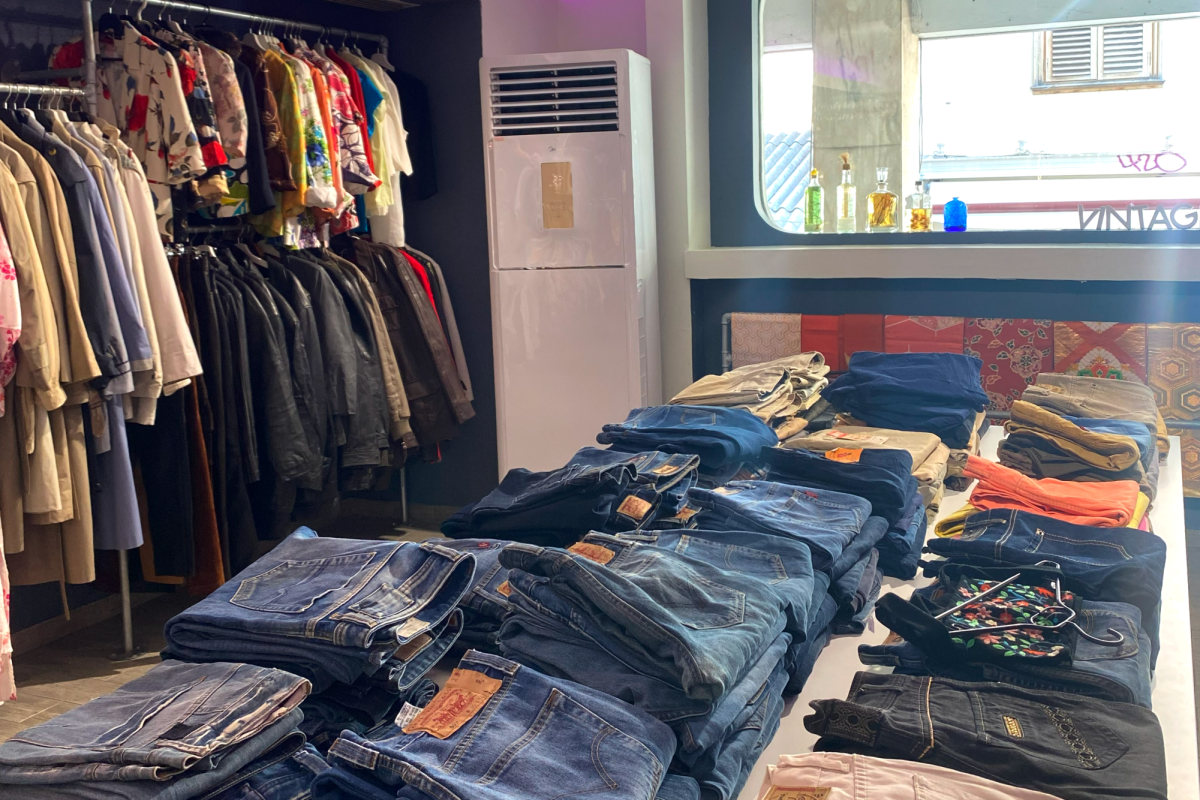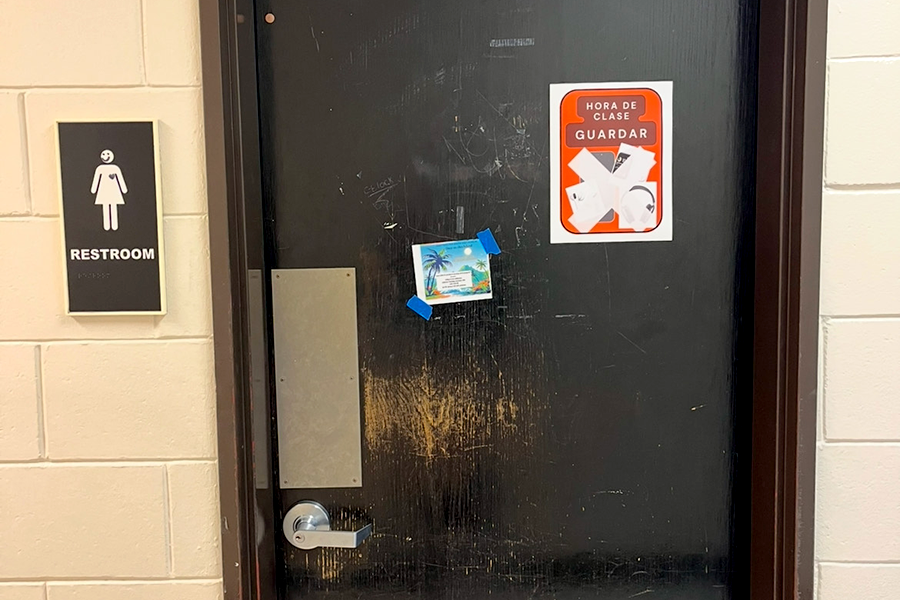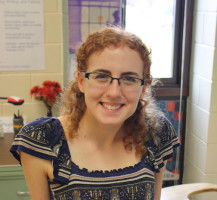Between Minneapolis, Minnesota, and Jerusalem, Israel lies 6,242 miles. That is roughly 6 times longer than the distance from Minneapolis to New York City, and 43 times longer than that of Minneapolis to Duluth.
For almost anybody, this hot, sacred, and war-stricken area that includes Israel and Palestine is far away. And yet, their constant conflict over claim to religious holy land still reaches into South High, to affect South students.
“It’s just affected me in a way, because I feel, like, at the bottom now,” stated junior Muhamad Idheibeh, a student with Palestinian heritage, “in a way it’s kind of like a genocide.”
The independent state of Israel was created in 1948, as a response to the Jewish persecution in the Holocaust. This country was created around the holy city of Jerusalem, the Jewish homeland.
However, another people regarded this land as sacred as well. A strong Muslim community was centered around the same area of Jerusalem, their religious origin. Almost immediately after the creation of Israel, Arab-Israeli fighting began, and tensions have continued, and built into one of the most sensitive issues today.
In 2008, Ruth and Leo Kendrick were living in Amman, Jordan, where approximately 70% of the population is comprised of Palestinian refugees, or families that were forced to relocate by the Israeli influx.
“They just kind of had a blind animosity towards Israel,” remembered Leo Kendrick, a senior, “I think their parents have a right to dislike Israel, and what they’ve done for the Palestinians.”
Being a witness to this experience has changed both Kendricks.
“I have to say that living [in Jordan] put me at more of a prejudice than I want, than I would like to admit, against the country of Israel as a whole,” stated Ruth Kendrick, a junior, “because I’ve seen the way it’s affected – I know people who have relatives living in places that were attacked while I was living there.”
“It has affected me greatly,” said junior Saida Mahamud, who is connected to the crisis through her Islamic faith, and her investment in human rights causes, “because obviously this human rights, is a bad thing going on, and it’s obvious that it’s happening, that the Palestinian people are being tormented, and killed, and tortured by the Israeli government. And that Palestinians are constantly being moved, and that their houses are being demolished so that the Israeli government can build new houses there.”
The other side of the story is also represented at South, in the large Jewish population.
“I’m really biased, I’m not going to lie, just because of my religion,” stated junior Jonah Rothstein. Every Monday and Wednesday, Rothstein attends Hebrew class, where he, and other members of his group, discuss current events, among other things. Because of the obvious connection to Israel, things happening in the Middle East are a common topic.
“Everyone who’s Jewish, at least, has a real predisposition to support Israel,” Rothstein noticed, “everyone is unconditionally for Israel, in my experience, even if they don’t support some of the actions of the Israeli government. But that doesn’t mean that you can’t support the cause and the state of Israel, and it also doesn’t mean that you don’t support a two state solution, or what the Palestinians want, it’s just a matter of connections.”
Sophomore Shana Crawford, a fellow member of Rothstein’s community, tried to explain further.
“This is a super, super serious topic, and no matter who you ask their opinion is very varied. So my opinion does not represent all Jews,” she began, “personally, I think that Israel could give it up a little more. But, that being said, Israel, to Jews, is a holy land, and we’ve been giving up stuff for generations, and generations, so now that we’ve got Israel, Israel is completely right in being the not relenting.”
For Idheibeh, the Palestinian people have a significant right to the land as well.
“After they sent the Jews there, it messed everything up,” Idheibeh stated, “it was said that it was promised to them, but in a way, it’s just their own thing, it was ours first, and they just basically came.”
“When people use those kinds of words, identifying with the holy land, and those kind of things, while still ignorant to what is happening there, it makes me angry,” said Ruth Kendrick, “because they think it’s flawless, they think it’s perfect, they think it’s their place of origin, when the fact is that people who also it was their place of origin are being oppressed there.”
Peace talks between the Palestine and Israel have been happening for decades, moderated by the United Nations, and the United States. A big step in the resolving of this crisis was recently taken, when Palestinian leaders registered for statehood with the UN.
“I think that’s a mistake, just because they’re not ready for it yet, Israel or the Palestinians. If there’s a state without a functional government, and without, there needs to be more negotiations before that can happen,” Rothstein said of the recent plea for statehood.
In order for Palestine to be ready for independence, Rothstein believes that several steps must be taken.
“[Palestine and Israel] need to engage in direct negotiations, maybe first with the United States as a mediator, or maybe another country, sometimes it’s Egypt, but really, really needs to be direct,” Rothstein stated, “after direct negotiations, there just needs to be concessions of different things that each side is willing to give up, and major compromises for both sides. After that, statehood for Palestinians can begin to be discussed.”
Apart from the right of Palestinian statehood, Idheibeh challenged the right of other countries to vote upon it.
“I think this whole situation is just stupid because it wasn’t Israel at first, it was just Palestine,” Idheibeh protested, “and now with this whole state situation, they were just seeing if we should be a state again. Which just makes no sense because we already were, so you can’t vote on what we already were.”
Idheibeh, Rothstein, and Crawford were in agreement about the time span it would take.
“I think this is going to drag on for a very long time,” Rothstein cautioned, “I’d be very surprised if, in my lifetime, I saw a solution to the problem, just because it’s been happening since Israel’s statehood in 1948.”
Crawford summed it up, “probably nothing soon. I think it will resolve, cause it has to resolve, and that’s just how it works, but I don’t see it being any time soon, at all.”
Talking with the Kendricks, the exact opposite message was given. Ruth Kendrick stressed the importance of rapid action by our third party, the United States.
“I think that if the United States doesn’t start taking direct action, or, especially if the President doesn’t stop supplying Israel with weapons, and those kind of things; if those aren’t taken immediately, then all the Palestinians will either be pushed out, or killed in Palestine,” Ruth Kendrick stated passionately, “or, alternately, the Palestinians will be able to gather a huge number of people who are fighting for their cause, and it will just end in a war. I couldn’t say how the war will end, but it wouldn’t be a positive thing.”
Mahamud also cited the importance of the United States influence.
“I believe that, first, other countries look up to the US, and they see that, whatever the US does, maybe we should do it,” Mahamud said, “and since the US is supporting Israel, other countries might be doing the same. Other countries should just, not even look at what America’s doing, and just see it as a moral issue that there shouldn’t be any human rights injustices going on in that region.”
Thus far in dealing with the crisis in the Middle East, the United States has taken a very pro-Israel stand.
“I think a lot of times we blindly support the Israelis, and the Jews, because WWII had such an impact on us,” stated Leo Kendrick, “so we sympathize with them much easier than we do with Muslims.”
“I think that Obama is making steps in the right direction,” Leo Kendrick added, “but there needs to be more like that.”
Because of the issue’s extreme sensitivity, opinions have the power to change relationships, and perceptions of a person.
“This crisis is so motivated by religion, and deep connections to land, and things that are so important to people, that it’s so hard to talk to someone with a differing opinion than myself,” Rothstein said, “honestly, I get rather uncomfortable discussing it with someone who doesn’t have the same views as me. It’s a pretty heavy topic, so I think that, I don’t know what they think about a two state solution, or the process of negotiation, or what they think needs to happen there.”
Idheibeh has had a similar experience.
“It hasn’t changed anything,” he said, “I’m still friends with them. I just think it’s wrong what they’re doing.”
Although they differ, both sides represented at South want a resolution.
“I mean, preferably it’d all just stop, but that’s not gonna happen,” Crawford thought. ” I’m pretty good with peace.”
Idheibeh echoed her simply.
“I think there should be peace.”



